This is a sponsored article in association with Columbia
All Photos: Zach Doleac
For Olympic athletes competing in less publicized sports, their once-every-four-years turn on the world stage introduces them to a whole new audience. This February, viewers around the world will see freestyle skiing — some for the first time. Captivated by the physics-bending tricks, they’ll cheer for their countrymen and women for two weeks without fully appreciating the years of training leading to that moment. They may never even see the people behind the goggles.
We spoke to a few of these skiers who are soon to be household names about their motivations and passions. The larger freeskiing movement may no longer have much in common with moguls and inverted aerials, but these athletes tell stories that skiers of all kinds can relate to.
Meet some of the U.S. Ski Team’s brightest hopes at the 2018 Olympic Winter Games in Pyeongchang, South Korea.
https://www.newschoolers.com/videos/watch/886676/Tested-Tough---Global-Ski-Teams
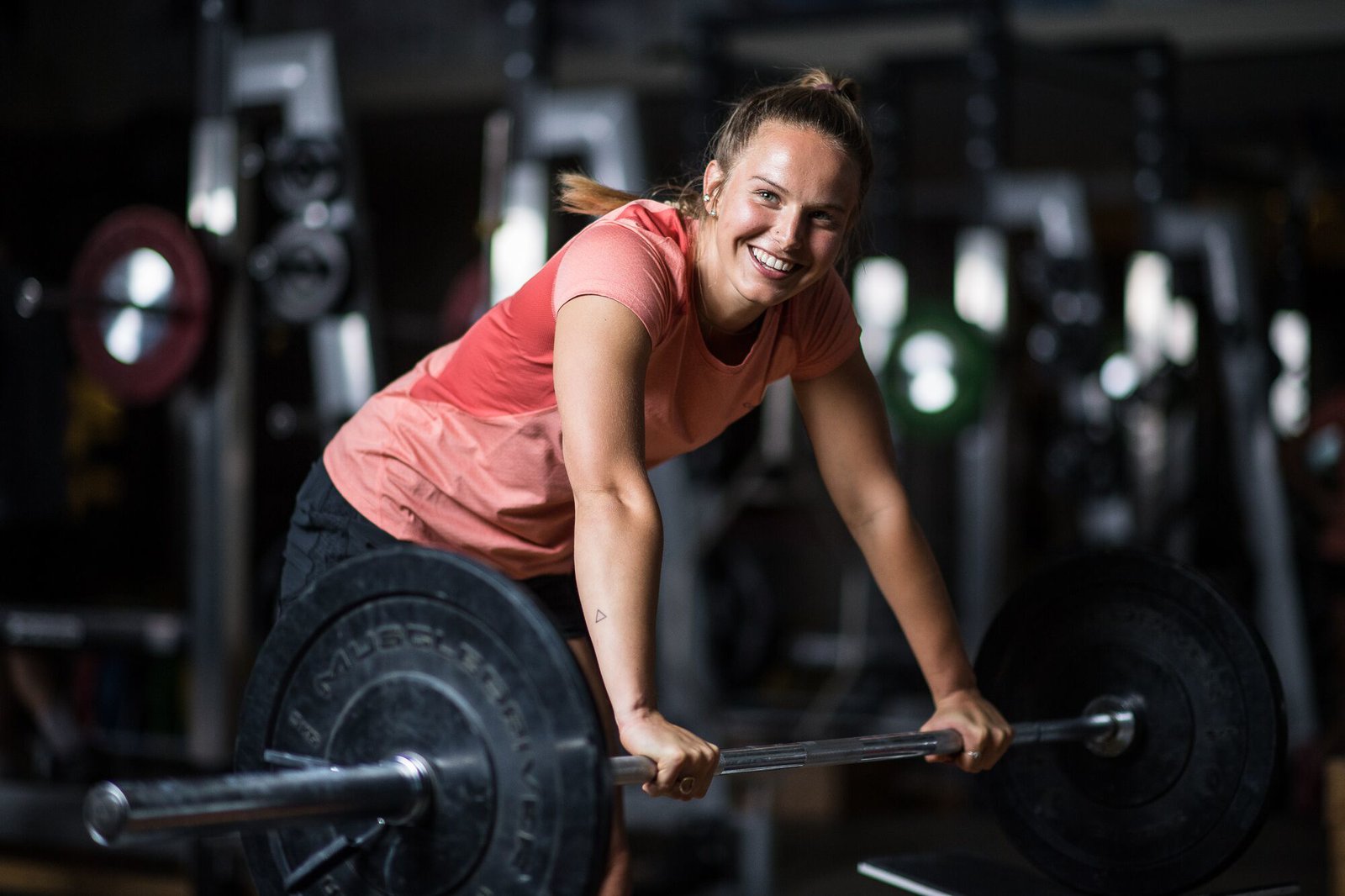
Morgan Schild
Age: 20
Home: Pittsfield, NY
Morgan Schild grew up in Rochester, NY learning to ski in “some of the crappiest conditions.” Like many East Coast skiers, she absolutely loved it. Schild made the U.S. Ski Team for the first time at 16 and won her first World Cup at 17. She now lives in Park City UT, where she has become one of the best mogul skiers in the world.
NS: You’ve had some big World Cup wins over the past couple of winters, including taking down Olympic medalists. Tell me what it feels like to top the podium?
MS: Taking the top spot on the podium is a very satisfying feeling. It’s the moment when you realize all of your efforts leading up to the competition paid off. At a World Cup in Japan I got to dual the Olympic Gold medalist Justine Dufour Lapointe. I actually won that duel and went on to win the entire dual event. I shared the podium with teammate and legend Hannah Kearney, which was just icing on the cake.
NS: You came back from a torn ACL stronger than ever, based on your results. Tell me about that process.
MS: The sport of mogul skiing in particular is very demanding on your knees. I blew my knee in 2015, a couple weeks after my first World Cup win. That was a hard pill to swallow. After 22 months, two surgeries and countless hours of physical therapy I returned to competition in Lake Placid, NY.
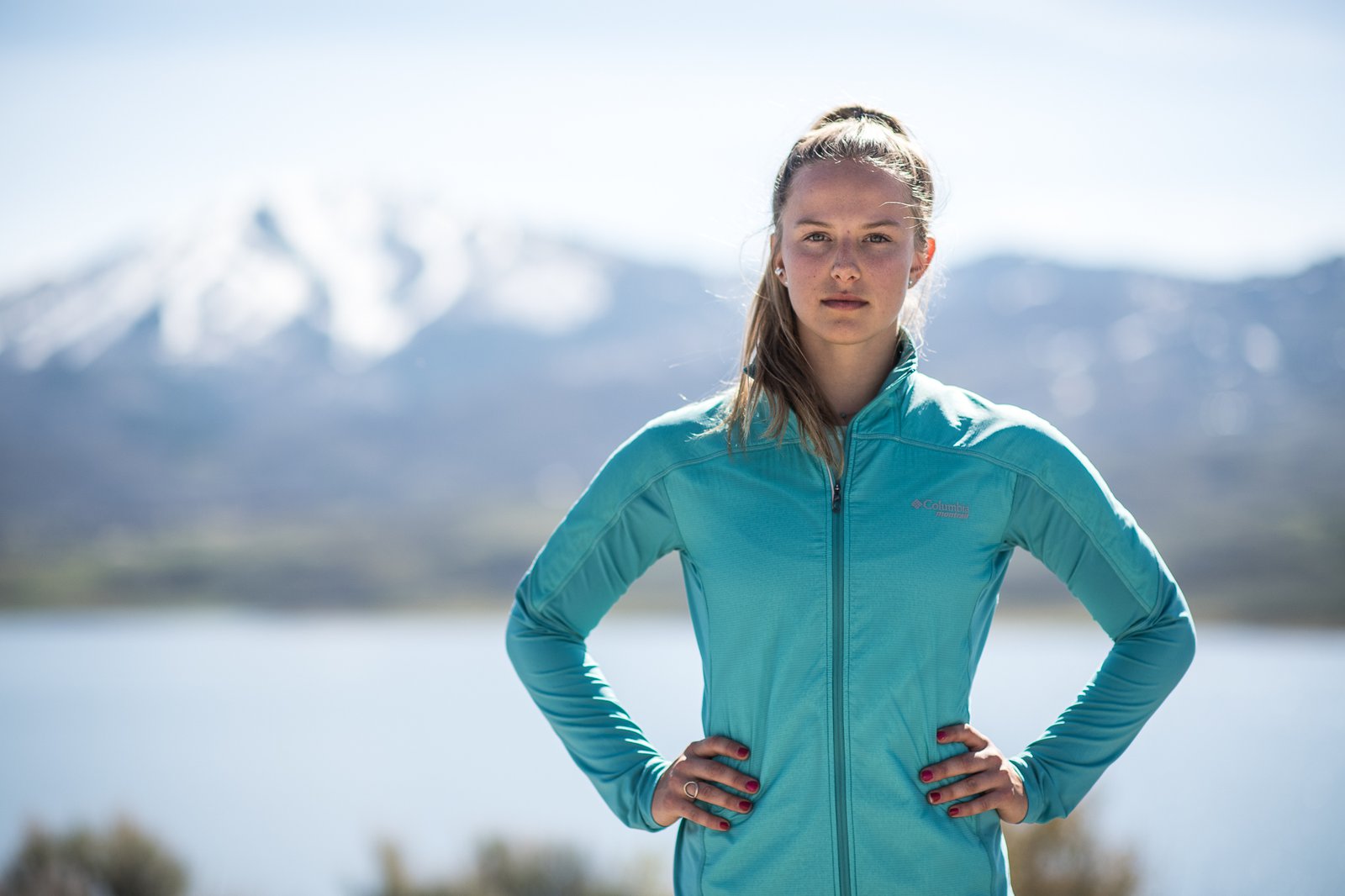
NS: What has the leadup to the Olympics been like? Do you feel any pressure to perform? Is it hard being put in the spotlight?
MS: I have never experienced an Olympic year where I have a shot at making it. I was selected to go to the Olympic media events this year and be a face of US mogul skiing. This has definitely put some pressure on myself and a target on my back. I feel like not many people even know mogul skiing is still a sport. Until the Olympic Games, there’s not much attention paid to mogul skiing. If I am given the opportunity to make history for the U.S. team at the Olympics, I will do everything in my power to capitalize on it.
NS: You are one of few women skiers throwing off-axis tricks in mogul competitions. Talk about your bag of tricks.
MS: The first inverted trick I learned on snow was a front flip, when I competed in aerials when I was 12. I started throwing a cork 7 when I was 15 and have competed that trick ever since. Not many girls have my run with 2 inverting tricks (back flip to cork 7), so it allows me to stand out from the competition.
NS: What does skiing mean to you outside of competition?
MS: To me, skiing isn’t just a competition. Skiing is a lifestyle that allows you to feel free, travel to beautiful places and meet amazing people. My friends mainly come from the skiing community, so it’s a pretty social scene as well. I will ski for as long as my body can keep up.
NS: Reading some interviews, and checking out your Instagram, it looks like your good friends with a lot of the pipe and slopestyle skiers. Ever thought of dropping the bumps and joining them?
MS: I met a few athletes in other sports and disciplines in the physical therapy room because of my injury in 2015. They had either the same or similar injuries and we found common ground and started great friendships. We were all very excited when everyone got to return to their sport and I can only imagine the excitement if a few or all of us make the Olympic Team. Those friends are Julia Krass, Darian Stevens, Maggie Voisin, Maddie Bowman, and Zoe Kalapos. It has crossed my mind to give [park skiing] a try. I guess my favorite aspect of moguls is how challenging it is. Moguls requires skills in jumping, turning, and speed, and in order to win an event you have to master them all. At some point in my career I really want to throw a cork or two off a booter.
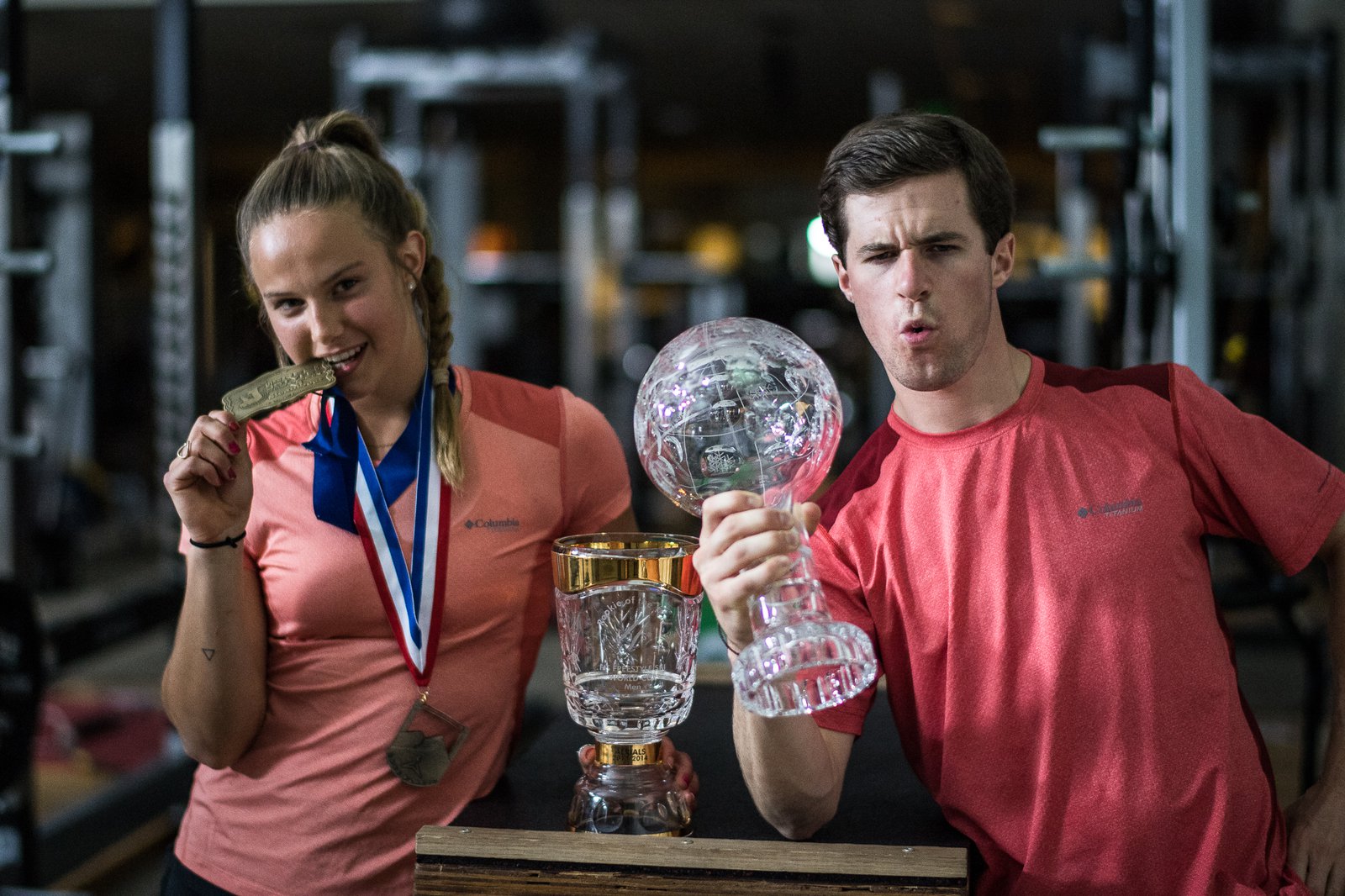
Morgan and Mac
Mac Bohonnon
Age: 22
Home: Park City, UT
Once a jack of all trades, competing in nearly every skiing discipline, Bohonnon has channeled his energy into become one of the U.S. Ski Team’s most promising young aerialists. Bohonnon made the 2014 Sochi Olympics as a last-minute addition, ultimately placing an unexpected fifth. With another four years of training under his belt, this East Coast skier will be seeking the podium in Pyeongchang.
NS: Can you break down some of your tricks for us? Any way that you can describe them in a way a more park-focused skier could understand?
MB: The two main tricks that I compete are full double full full (FDFF) and double full full full (DFFF). Both are quad twisting triple backflips. A full is a cork 7 and a double full is a cork 10; my two tricks would be triple cork 2520s [to a park skier].
I’ve also been training a quint twisting triple backflip, which is called the Hurricane. It is a full triple full full, which was made famous in our sport by one of my former teammates, Jeret “Speedy” Peterson. The hurricane breaks down to a triple cork 2880.
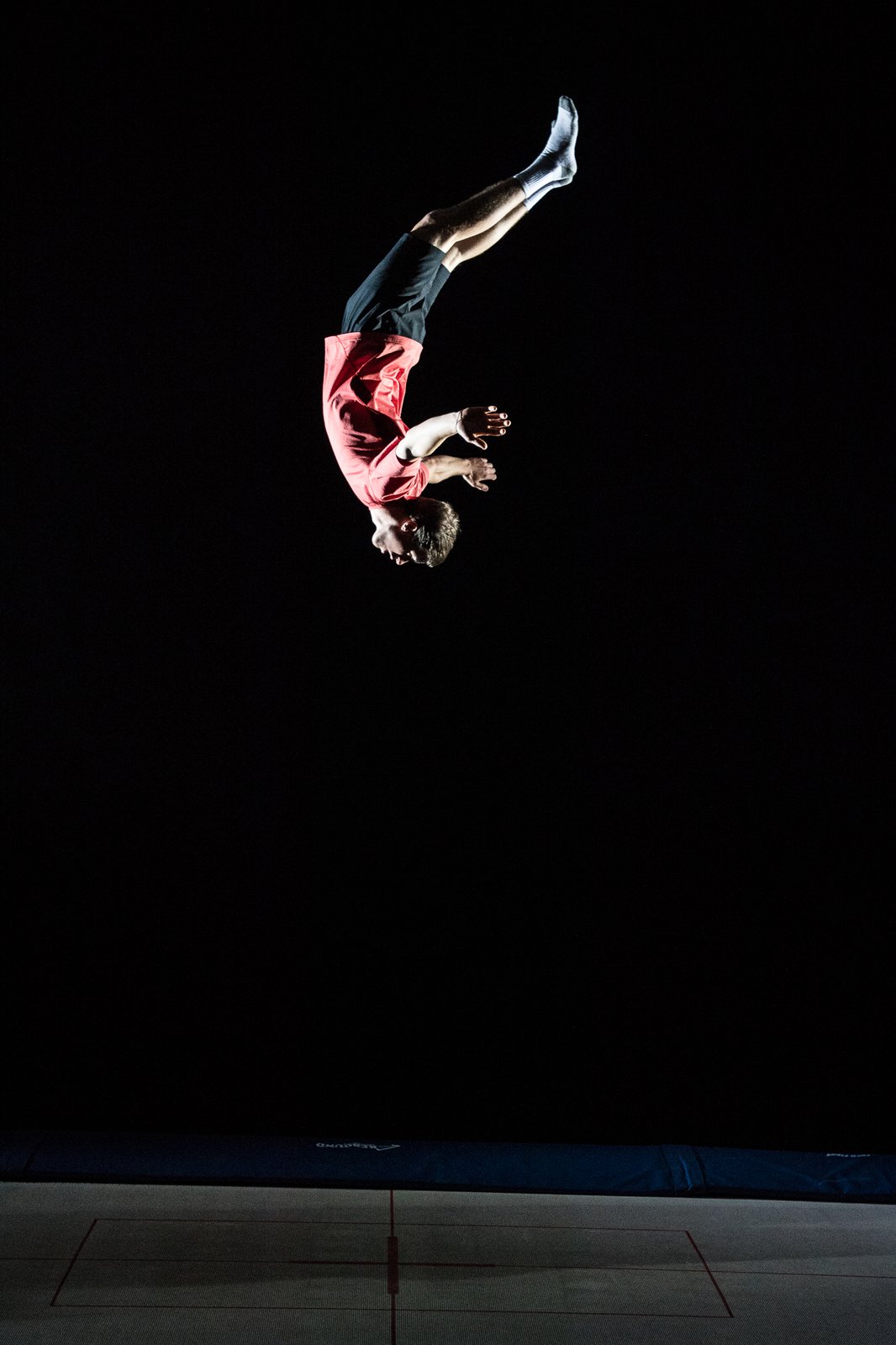
NS: If you weren’t competing in aerials, would you still be skiing?
MB: Without aerials and competitions I would probably ski substantially more than I do now because I’d have more free time. There is a pretty common misconception about aerials, which is no one knows how to ski. Most of my teammates and I grew up as park rats at different mountains scattered across New England. Without aerials, we’d be right back into the park trying to one up each other and in the trees on pow days having as much fun as possible, which is exactly what we do when we’re doing aerials as well, just less frequently.
NS: This will be the first Olympics with big air as a discipline — it’s only snowboarding this time, but skiing will likely follow. As an aerialist, what do you think of that?
MB: I think big air becoming an Olympic discipline would be rad for the guys and girls that are part of the competitive freeskiing scene. The Olympics are the pinnacle of aerials — we dream of winning an Olympic gold medal. The freeskiing world may not feel the same way, but I don’t see any harm in having another event and opportunity to win an Olympic medal.
NS: You’ve found a lot of success since your last Olympics. What are your goals this year?
MB: I’d be lying to you if I said my goal was anything shy of winning a shiny gold medal at the Olympics. It has been my dream to win an Olympic medal for a long time.
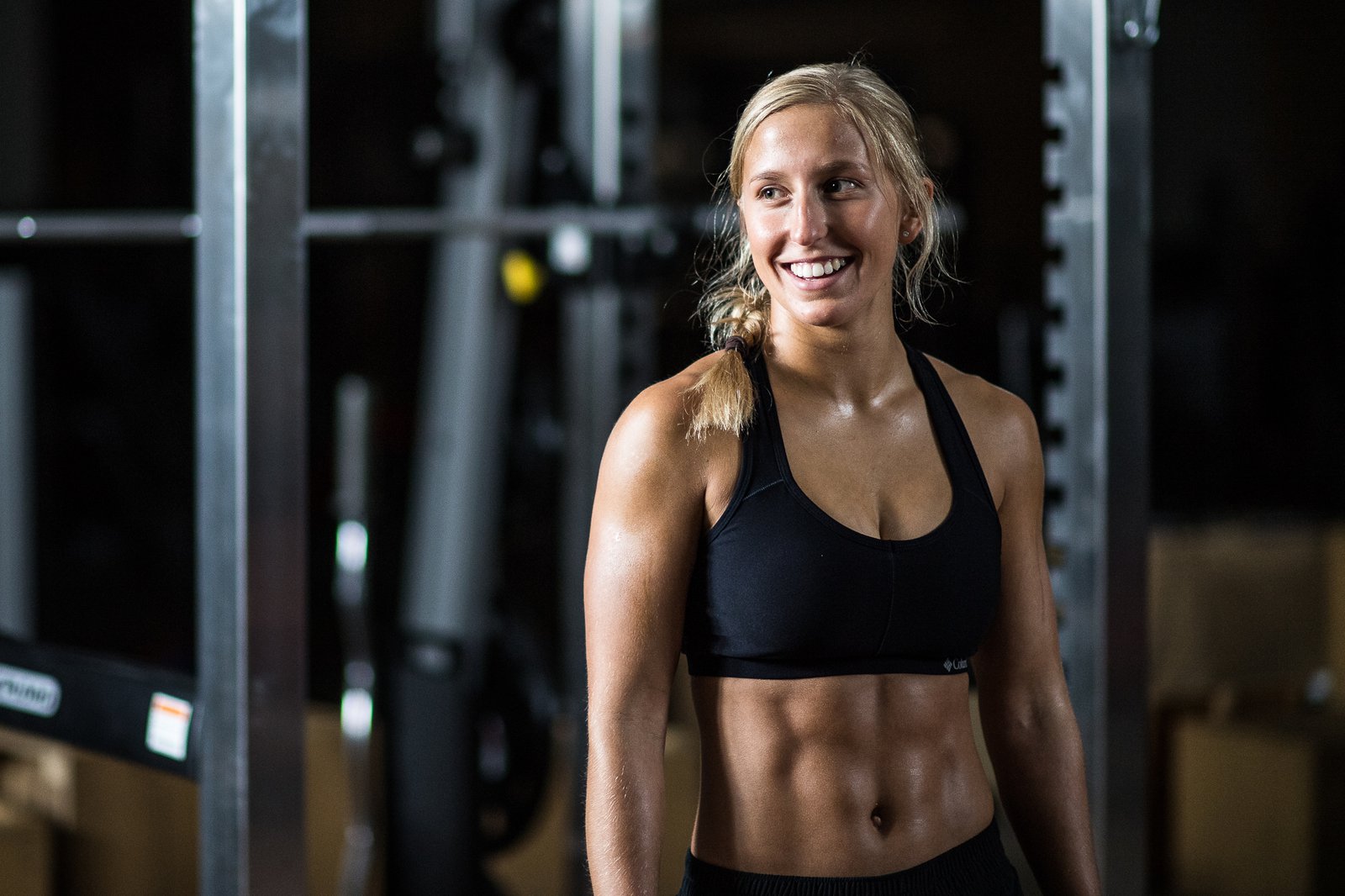
Winter Vinecki
Age: 19
Home: Grand Rapids, MI
Vinecki is a multi-talented athlete, competing in ultramarathons as well as skiing. After falling in love with the feeling of flying, Vinecki pursued aerials full time. Her father lost a battle with prostate cancer when she was nine years old, providing lifelong motivation for the young skier. She seeks to channel his memory by always striving for the best, and helping others along the way.
NS: You’re on the hunt for your first Olympics. Tell me how that feels.
WV: It is both incredibly exciting and nerve-racking. I have been training the last five years nonstop, with the one goal of making it to the Olympics. To have that time almost here is thrilling because the wait is finally over. At the same time, though, I know nothing is a guarantee and I need to have my best season yet to get on the Olympic team, which puts a lot of pressure on the competitions this year.
NS: What are your goals for the winter and the Olympics?
WV: At the Olympics, I want to channel my years of training into those few seconds that make up our jumps in order to land my best jumps yet. From there, it is up to the judges
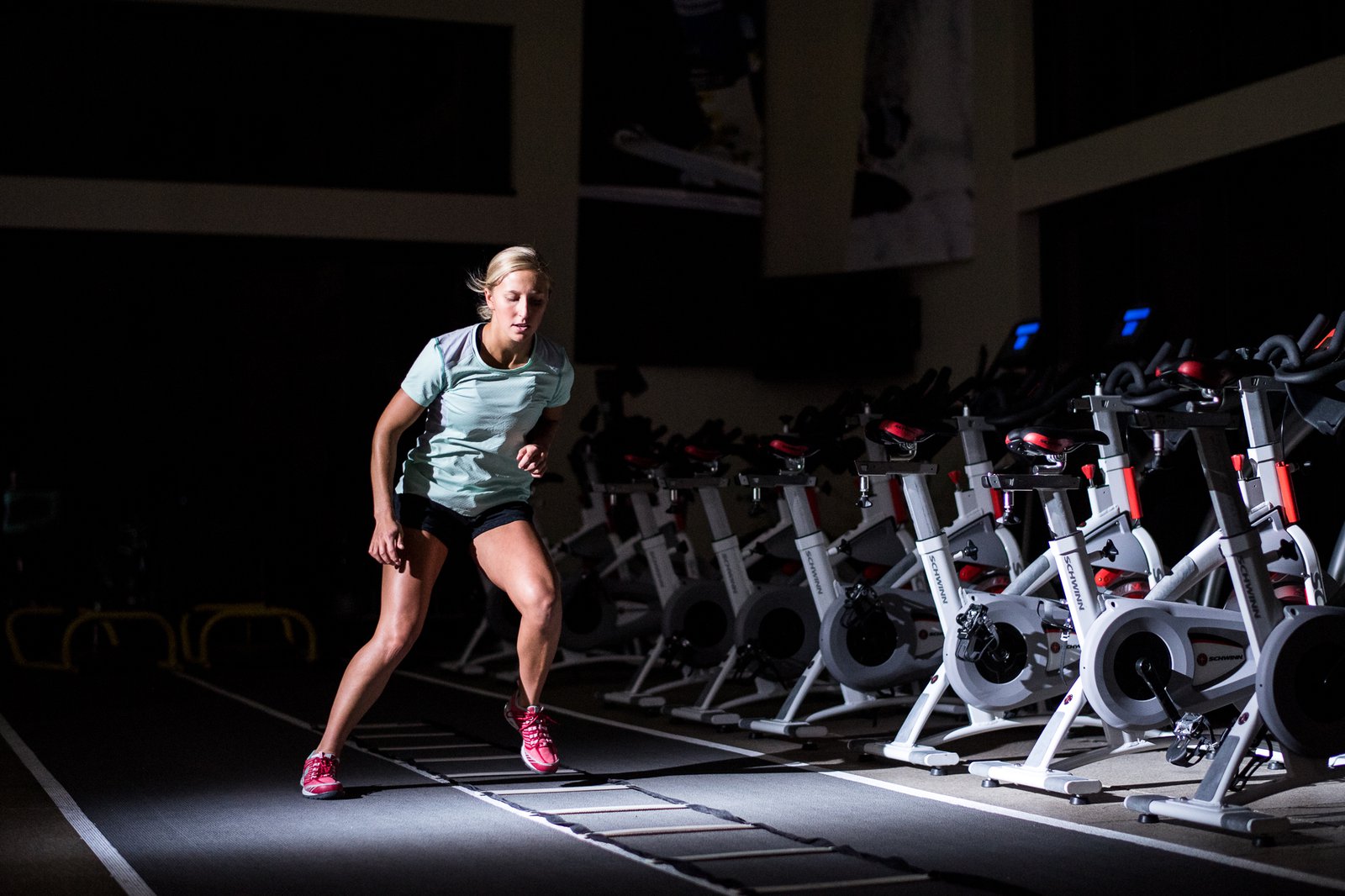
NS: What does skiing mean to you outside of competition?
WV: Skiing reminds of family and fun. It brings me back to being a kid and skiing around purely for the joy of it.
NS: Tell me about how your father’s passing has turned into a source of motivation and inspiration?
WV: After my dad past away, I have constantly sought to accomplish bigger and better things in his memory. First, it was completing an Olympic-distance triathlon when I was 9. Then it was setting the world record for the youngest person to run a marathon on all 7 continents. Now, it is making it to the Olympics. I use his passing as fuel to keep pushing forward. You never know when it will be your last day so why wait until tomorrow to do things you’re capable of doing today. I live each day knowing I am here, healthy and able to do the things I love. I hope with my accomplishments that I can leave my mark on this world by helping others, like bringing awareness to prostate cancer, so no families have to go through what my family went through.
NS: Why aerials?
WV: After trying out aerial skiing for just one week on the water ramps, I knew I wanted to switch from racing. It combines two things I love: skiing and flying. I had always said growing up that if I had one superpower, it would be to fly. With the amount of fear that comes into play in our sports, I would not be doing it if I didn’t love it.
Bryon Wilson
Age: 29
Home: Park City, UT
Growing up in Butte, MT, Bryon Wilson and his brother would chase around the best skiers at their home mountain. Those skiers turned out to be the local freestyle team. The brothers gave freestyle a shot and were hooked for life. At 29, Wilson is one of the most experience mogul skiers on the U.S. Ski Team, looking to make his second Olympic team. He earned a bronze medal in the 2010 Olympics in Vancouver.
NS: You’re trying to make it to your second Olympics. Tell me how that feels.
BW: I have definitely grown up since my last Olympic start. I have great perspective going into these games and know why I am doing this. I love this sport and it brings me great joy.
NS: You came home last time with a bronze medal. What are your goals this time around?
BW: I would love to medal again! It was an amazing experience. This time around, though, I would use it to help others more. My perspective is different this time around and it is good.
NS: What goes through your head when you’re in the starting gate about to drop in for the chance to win an Olympic medal?
BW: This is awesome! Really, if you are in a position to compete for a medal all the work and prep is done. All the years it takes to prepare for that moment gave you that opportunity. This is the time to let ‘er rip!
NS: What does skiing mean to you outside of competition?
BW: Skiing in and of itself is an amazing experience. Being able to escape the worries and stresses of life and just be is amazing.
The competitive aspect of it has given me tools I will have for the rest of my life. I’ve learned how to deal with stress, how to work my butt off, how to win and lose gracefully. I’ve learned to be grateful and that success like mine takes a group effort. I’ve learned who I am and have become more faithful in God knowing that if I put in the work and am a good person it will all be good.


Comments